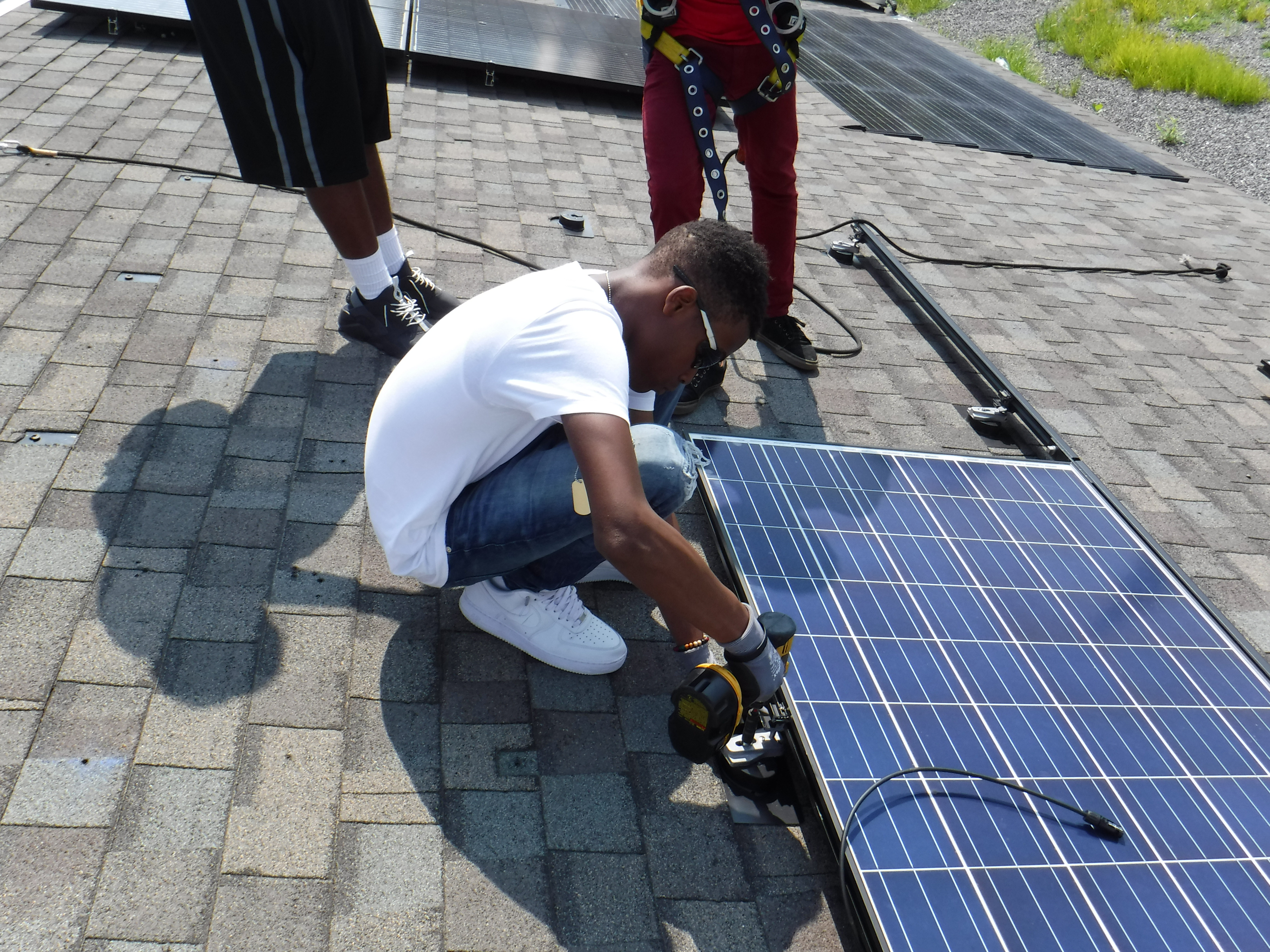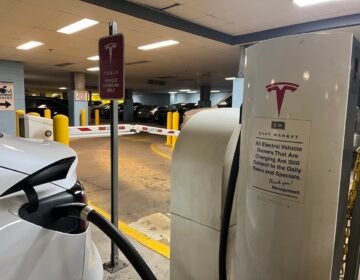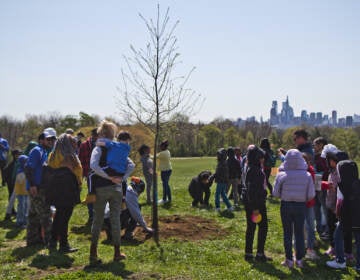Trump tariff won’t hit Philly’s growing solar industry, experts say

The tariffs on imported solar panels and cells announced by the Trump’s administration this week doesn’t threaten Philadelphia’s incipient solar market, local experts say.
Christine Simeone, director of policy and external affairs for Kleinman Center for Energy Policy at the University of Pennsylvania, acknowledges that the 30 percent tariff on equipment introduced by Trump will certainly result in a cost increase for large-scale solar projects. But because residential and commercial rooftop solar don’t generally demand a large number of panels, the price jump will be of only be an estimated three percent for homes and six percent for businesses.
“Most of the projects that you see in Philadelphia are residential and commercial projects, so you’re talking about a very incremental increase in cost,” Simeone said.
Trump sees the tariffs as a way to protect U.S. manufacturers, who argued it was impossible for them to compete with cheap solar panels imported from China. But according to the Solar Energy Industries Association, the tariffs will negatively affect the industry as a whole by increasing the price of solar installations.
But while the industry may suffer on the national level, Philadelphia energy professionals believe that local policies will protect the city’s market. Governor Tom Wolf recently signed a bill to boost solar in Pennsylvania and Philadelphia has its city-wide Solarize Philly program to lower the cost for residential customers.
“The actions of the state level and the programs developed in Philadelphia put the city in a good position to really minimize the negative effects of the tariffs,” Simeone said.
Philadelphia Energy Authority’s executive director Emily Schapira estimates that the tariff will increase the cost of the average Philly solar project by $350. The 186 households that already signed a contract with the Solarize Philly program last year, won’t be impacted at all by the new tariff because the equipment is already paid. And although the program offers three solar panel options, Schapira said the default option is a panel made in the U.S. which is not affected by the duty.
Solarize Philly is opening a second phase in a couple of weeks — they are already taking sign-ups in their website. Schapira says people who are interested in participating in the program shouldn’t let Trump’s tariff scare them away.
“A lot of overseas manufacturers are eating a lot of the difference in the tariff costs, so we’re not seeing a 30 percent increase in the pricing, we’re seeing sort of half of that,” Schapira said. ” We’re looking a lot closer at the soft costs to figure out where we can offset that equipment increase and keep the prices low for the consumers here,” Schapira said.
The tariffs are not changing the city’s effort to train future generations of solar installers either. Twenty-five high school students will start their solar and energy efficiency classes next February 5th at the Ben Franklin High School’s Renewable Energy Lab and at the Energy Coordinating Agency’s training center in North Philadelphia.
WHYY is your source for fact-based, in-depth journalism and information. As a nonprofit organization, we rely on financial support from readers like you. Please give today.







